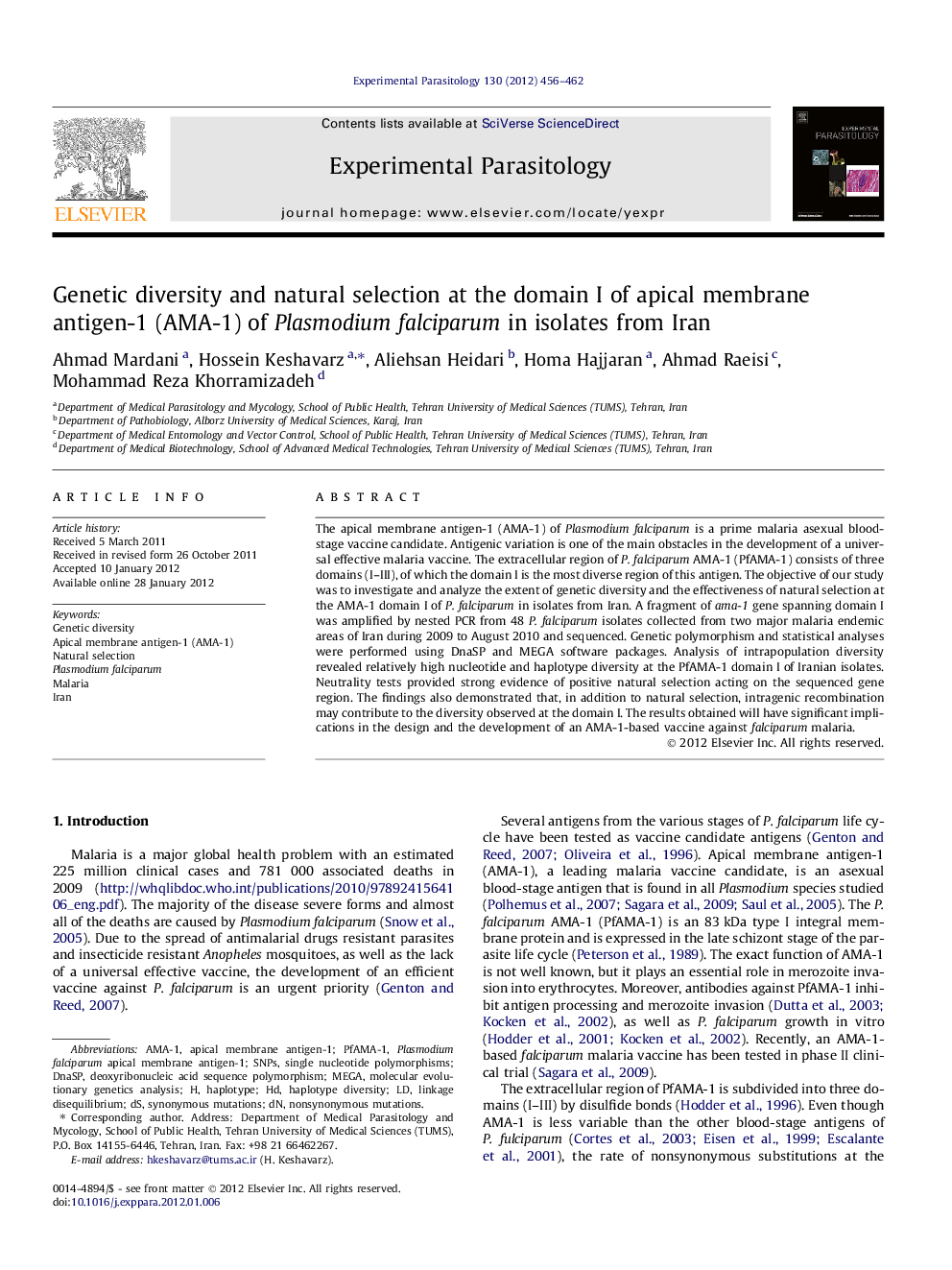| Article ID | Journal | Published Year | Pages | File Type |
|---|---|---|---|---|
| 6292016 | Experimental Parasitology | 2012 | 7 Pages |
The apical membrane antigen-1 (AMA-1) of Plasmodium falciparum is a prime malaria asexual blood-stage vaccine candidate. Antigenic variation is one of the main obstacles in the development of a universal effective malaria vaccine. The extracellular region of P. falciparum AMA-1 (PfAMA-1) consists of three domains (I-III), of which the domain I is the most diverse region of this antigen. The objective of our study was to investigate and analyze the extent of genetic diversity and the effectiveness of natural selection at the AMA-1 domain I of P. falciparum in isolates from Iran. A fragment of ama-1 gene spanning domain I was amplified by nested PCR from 48 P. falciparum isolates collected from two major malaria endemic areas of Iran during 2009 to August 2010 and sequenced. Genetic polymorphism and statistical analyses were performed using DnaSP and MEGA software packages. Analysis of intrapopulation diversity revealed relatively high nucleotide and haplotype diversity at the PfAMA-1 domain I of Iranian isolates. Neutrality tests provided strong evidence of positive natural selection acting on the sequenced gene region. The findings also demonstrated that, in addition to natural selection, intragenic recombination may contribute to the diversity observed at the domain I. The results obtained will have significant implications in the design and the development of an AMA-1-based vaccine against falciparum malaria.
Graphical abstractDownload full-size imageHighlights⺠The relatively high level of nucleotide and haplotype diversity was observed. ⺠Neutrality tests provided strong evidence of positive natural selection. ⺠All 28 haplotypes found here were new and have not been reported so far. ⺠Intragenic recombination may contribute to the diversity observed at the domain I.
